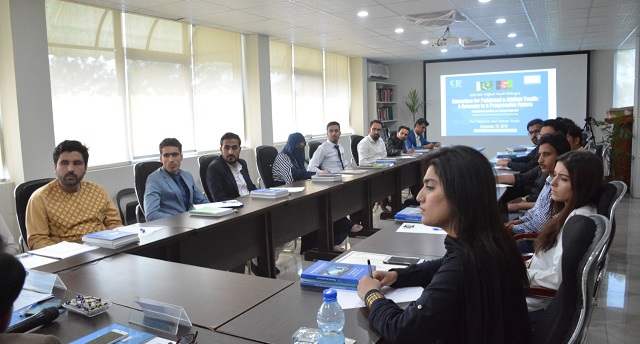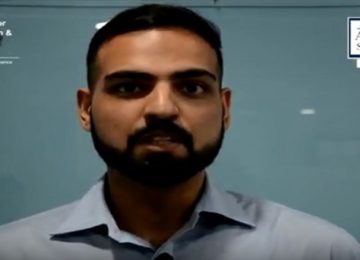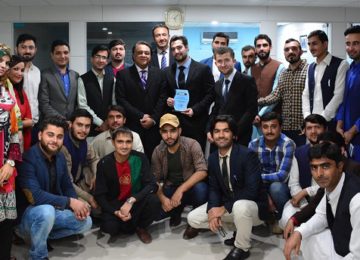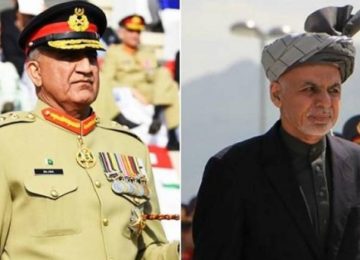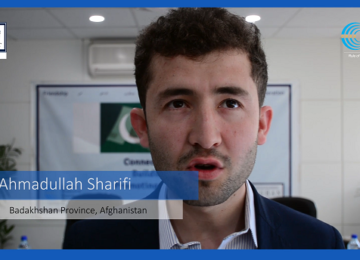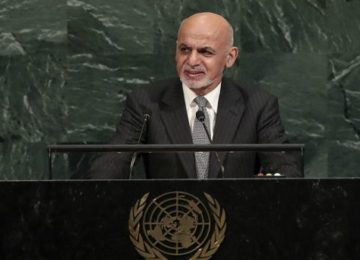September 27, 2019
Education diplomacy is one of the contemporary approaches in modern times that can play an effective role in bringing the nations of Pakistan and Afghanistan closer in a sustainable and constructive manner. The Government of Pakistan, as part of its contribution towards the socio-economic development and creation of academic opportunities for Afghan youth, has announced several thousands of scholarships for Afghan students who are interested to study in the educational institutions across Pakistan. President of Pakistan, Dr. Arif Alvi, announced another 3000 fresh scholarships this year under the Allama Iqbal Scholarship Program to facilitate the growing demand from Afghans wishing to pursue their studies in Pakistan.
This was told by Member of National Assembly and Educationist, Ms. Mehnaz Akber Aziz, who was invited as the Chief Guest & keynote speaker at Afghan Studies Center’s 25th Pak-Afghan Youth Dialogue in Islamabad on September 25, 2019, on the theme, “Education for Pakistani & Afghan Youth: A Gateway to a Progressive Future.” The dialogue was attended by over 24 young Pakistani and Afghan students and young professionals, belonging Quetta, Taxila, Wah, Azad Jammu & Kashmir, Islamabad and Abbottabad, in Pakistan and, Kabul and Paktia Provinces of Afghanistan.
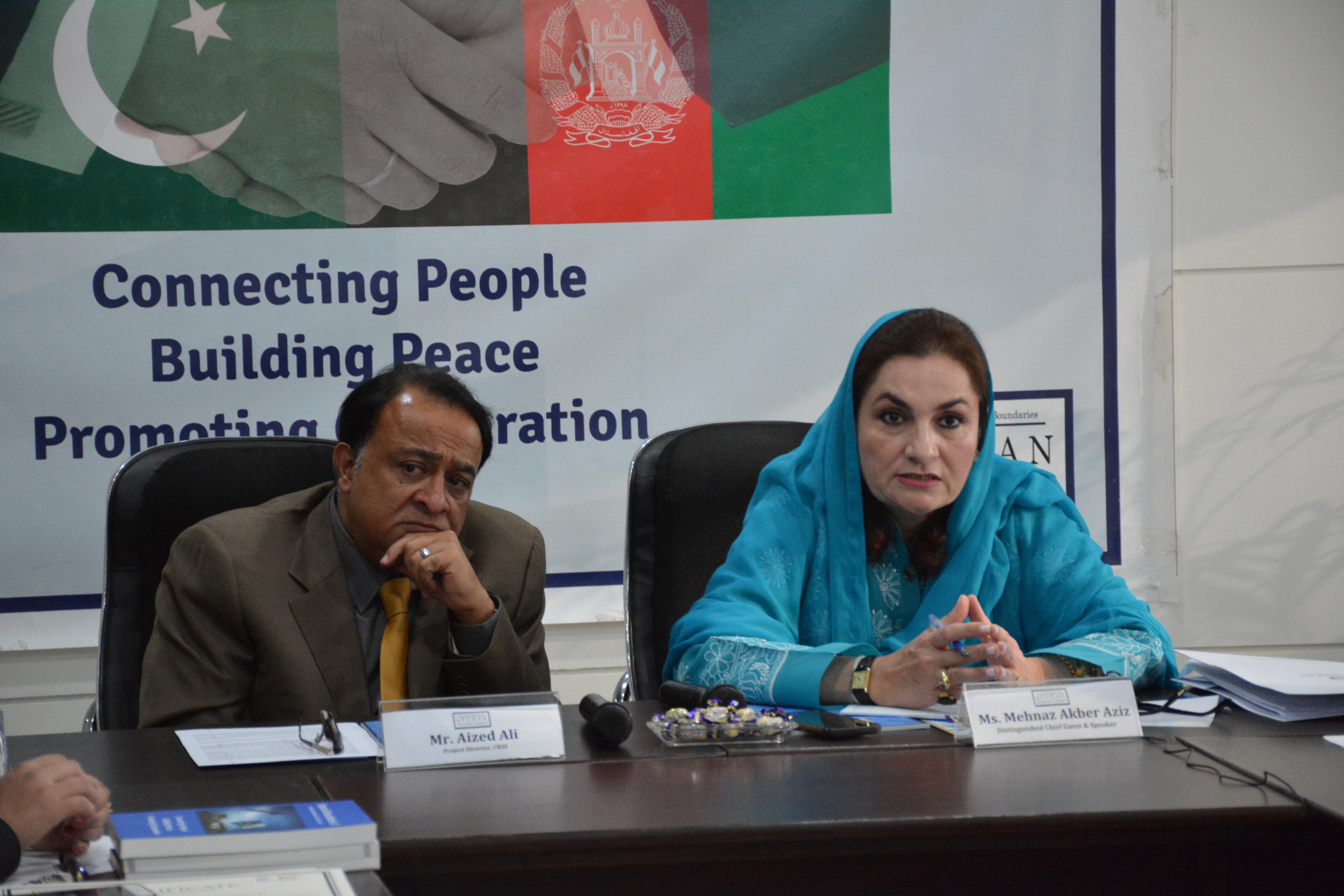
Ms. Mehnaz Akber Aziz informed the participants that the current scheme of scholarships for Afghan students by the government of Pakistan is a sequel to the first round of scholarships worth tens of millions of rupees. In order to ensure gender inclusion, a specific number of seats is exclusively allocated for female students hailing from Afghanistan, she informed the participants. Besides that, HEC also wishes to expand the number of scholarships for Masters and PhD degrees. Scholarships for Masters and PhD will be awarded to faculty members on the request of the Ministry of Education of Afghanistan to enhance their capacity. As part of this scholarship program, the Ministry of Education in Afghanistan requested for 100 scholarships exclusively for females, based on regional representation, to which HEC already agreed.
The initiative is seen as a significant confidence building measure and would serve as a harbinger of change and positive engagement between the two nations; the youth in particular, she said. Islamabad and Kabul, since long, have been in need of such youth-oriented programs for ingenious young minds who can push for positive change.
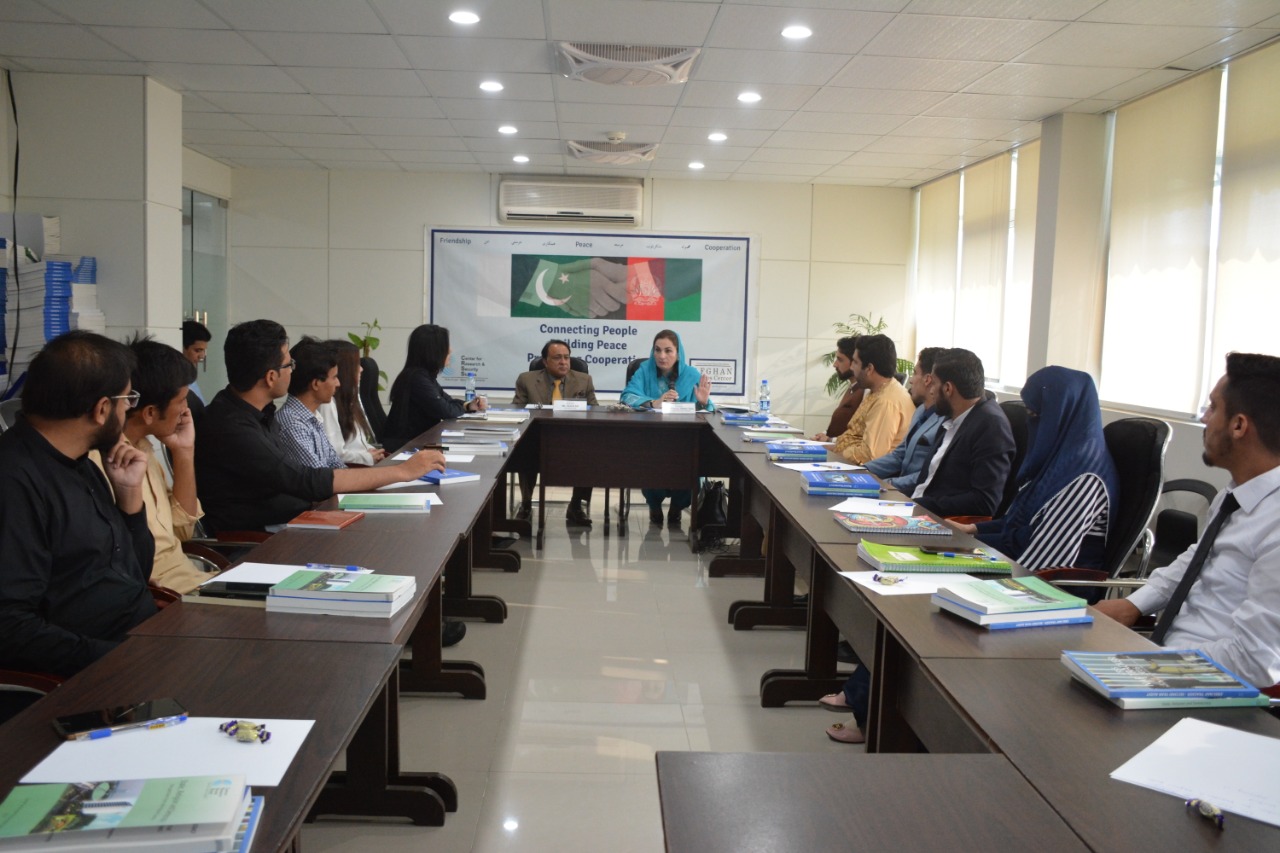
Additionally, according to some rough estimates, some 50 to 55 thousand doctors, engineers, Information Technology (IT) experts, trained by Pakistan are already serving in Afghanistan. 6000 fresh graduates, masters and PhD Afghans are being added to Afghanistan’s job market annually.
Pakistan and Afghanistan both, are privileged to have a youth bulge. Pakistan is desirous in fully investing in this joint human resource for sustainable development and prosperous future of both the countries, while at the same time limiting the space for extremists to hire these youth as gun fodder in their unending battles of vested interests. Afghan Studies Center (ASC) hopes that the consolidation of the education diplomacy by Pakistan would serve as a connector between the two neighbors for enhancing people to people contact and improvement in bilateral relations.
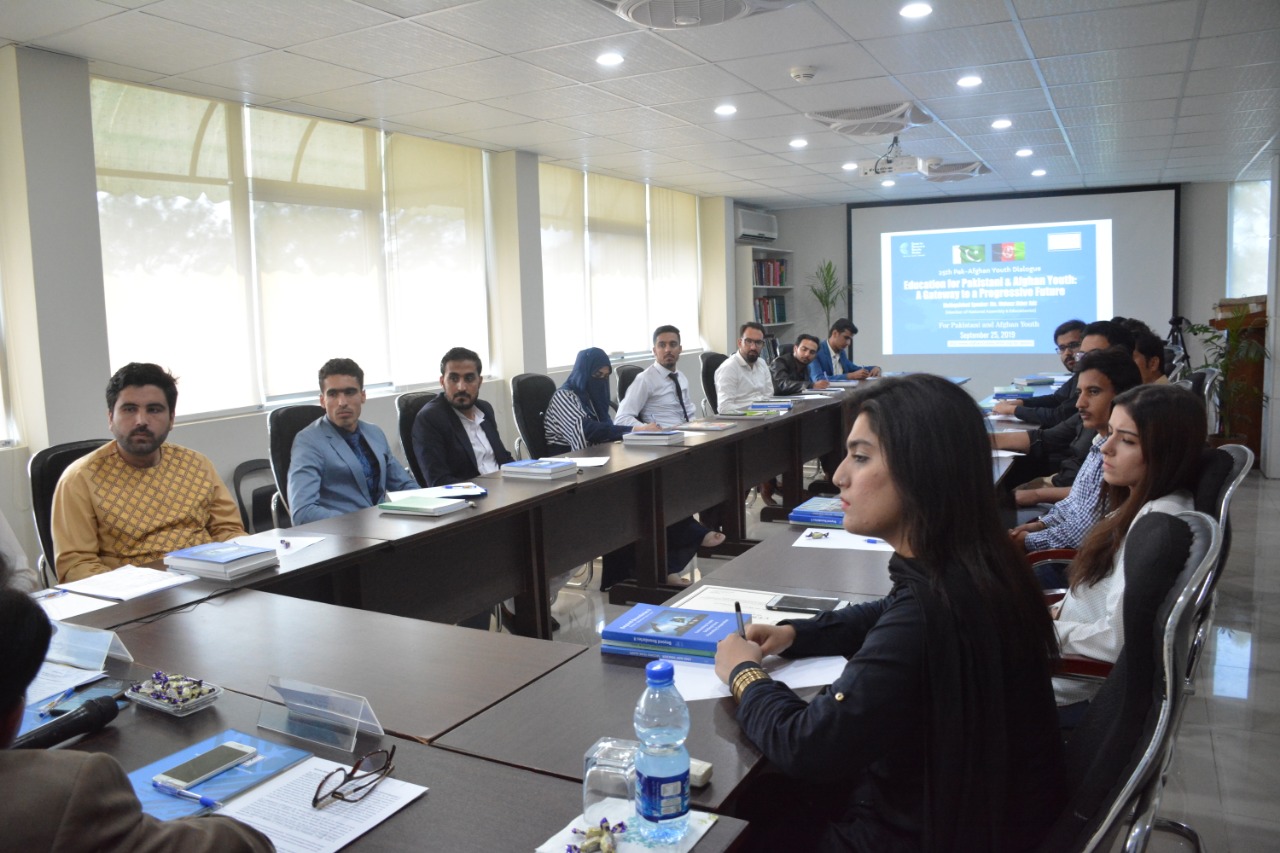
Shedding light on Pak-Afghan bilateral relations, Ms. Mehnaz stated that the influx of Afghans has changed the landscape of Pakistan in a positive way. Pakistanis have got to taste and learn about the scrumptious Afghan cuisine, the beautiful Kabuli jewelry, the splendid carpets and a lot more. Afghans enriched our cultural fabric in many ways, she said.
In the interactive Q & A Session, youngsters from Pakistan and Afghanistan posed several questions from the chief guest. Some youngsters were of the view that there need to be changes in the curriculum of educational institutions to include positive narratives regarding Pakistan and Afghanistan’s history if the future generation is to have a peaceful and promising outlook for the region.
Ms. Mehnaz stated that she would not use the term “refugee” when referring to the Afghans born and raised in Pakistan. She further stated that education diplomacy includes that we do not carry the old historical baggage.
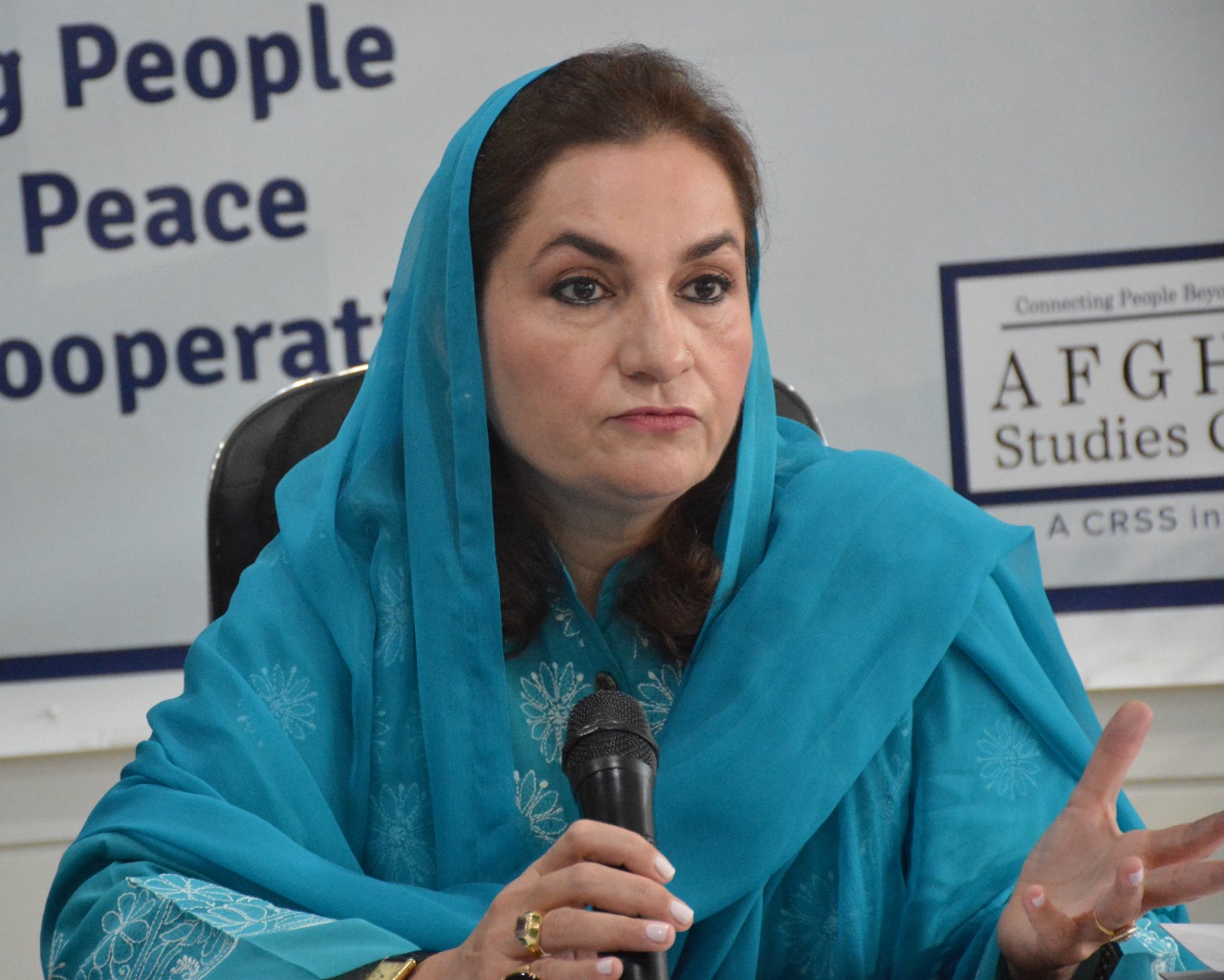
Ms. Mehnaz encouraged the participants to write down their grievances related to education in Pakistan, particularly, the challenges faced by Afghan students in Pakistan and pass them on to her so she may take the necessary measures to resolve the issues faced by them. She further stated that “as a parliamentary representative, I promise to support you in any capacity I can. I would like to connect you, the youth, with young Pakistani parliamentarians. There should also be a Pak-Afghan Youth Caucus set up on the official level to take the initiative forward and achieve tangible gains.” To this idea, the youth vehemently showed their eagerness. She also stated that she would be glad to connect the young Pakistani and Afghan participants with the young parliamentarians where they can exchange ideas and discuss the issues faced by the youth of both Pakistan and Afghanistan in detail. Particularly in this regard she stated that it is important to help the women and youth to work together as they form the basis of the society.
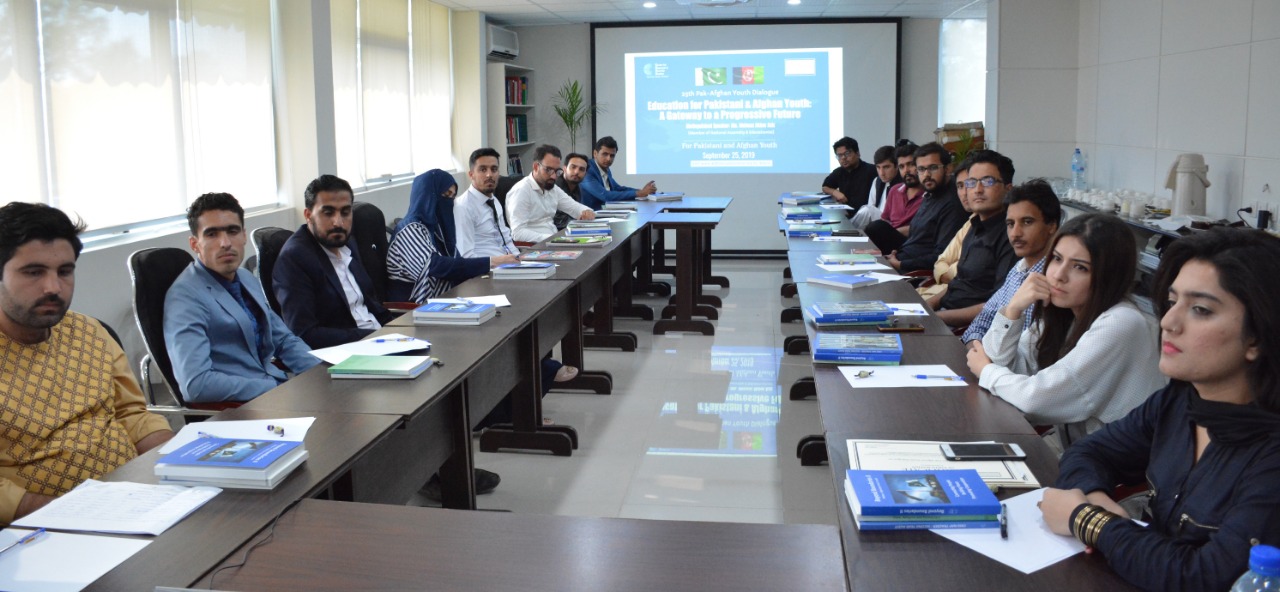
In her concluding remarks, as a message to the youth, Ms. Mehnaz expressed that mistrust destroys generations. As youth peace ambassadors, the youngsters should act like global citizens and always think of a win-win situation.
Project Director, CRSS, Mr. Aized Ali earlier apprised the participants about the ongoing Pak-Afghan Track 1.5/II Initiative ‘Beyond Boundaries’ of CRSS which is aimed at bridging the gulf of mistrust and improving bilateral relations between Pakistan and Afghanistan since October 2015. So far there have been 16 high level meetings between the two Pak-Afghan influencers’ groups, mainly in Kabul and Islamabad, but also in other major cities such as Karachi, Lahore, and Mazar-e-Sharif. He told the participants that the Afghan Studies Center (ASC) emerged from the implementation of the recommendations of these meetings. ASC has aimed to provide the youth of both countries a platform since its inception in April 2017 to inculcate critical, creative, and out of box thinking and to dispassionately interact and exchange ideas as they emerge as future leaders and ambassadors of peace. The initiative now has alumni of over 1000 members from its 25 youth dialogues and 13 youth training workshops.
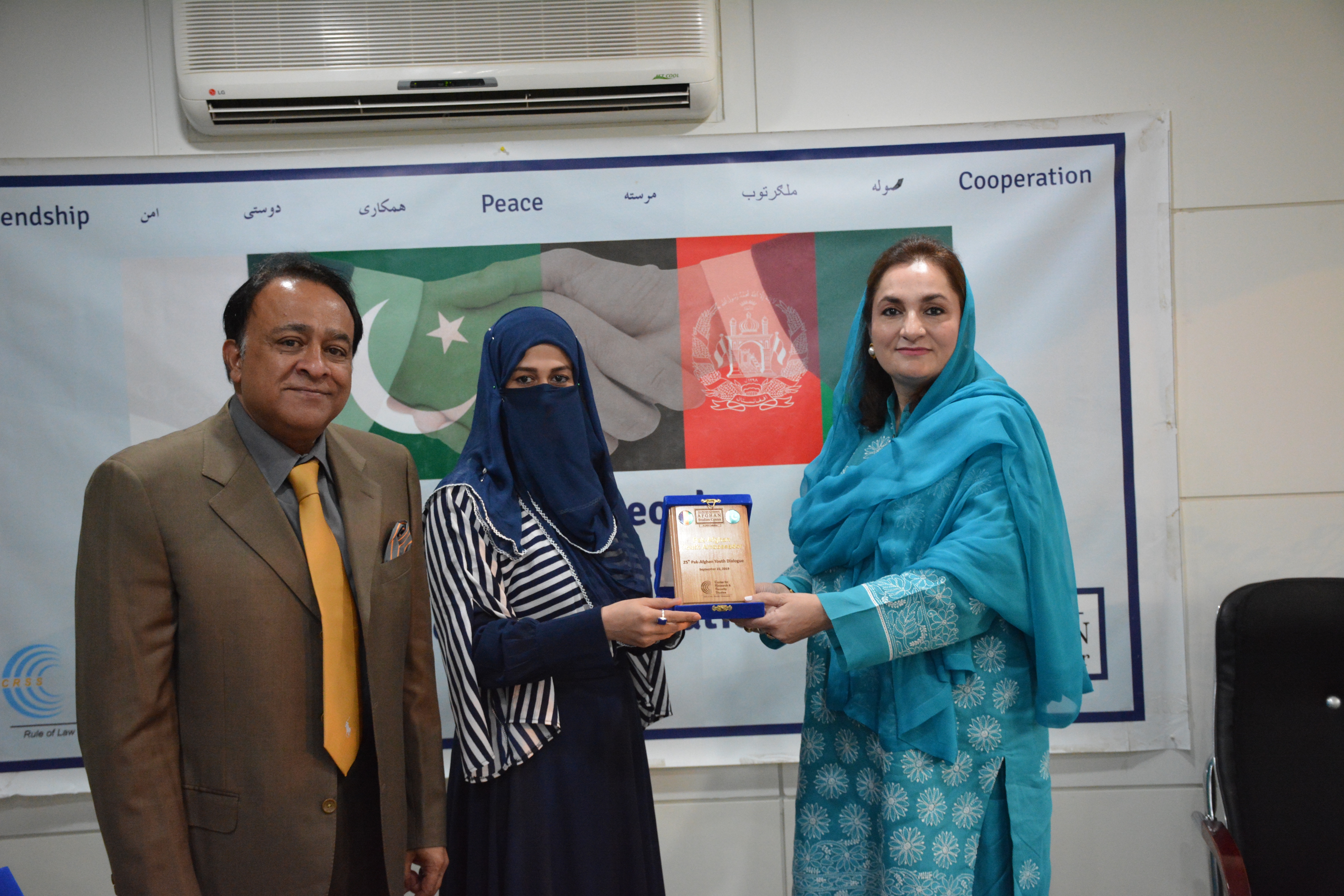
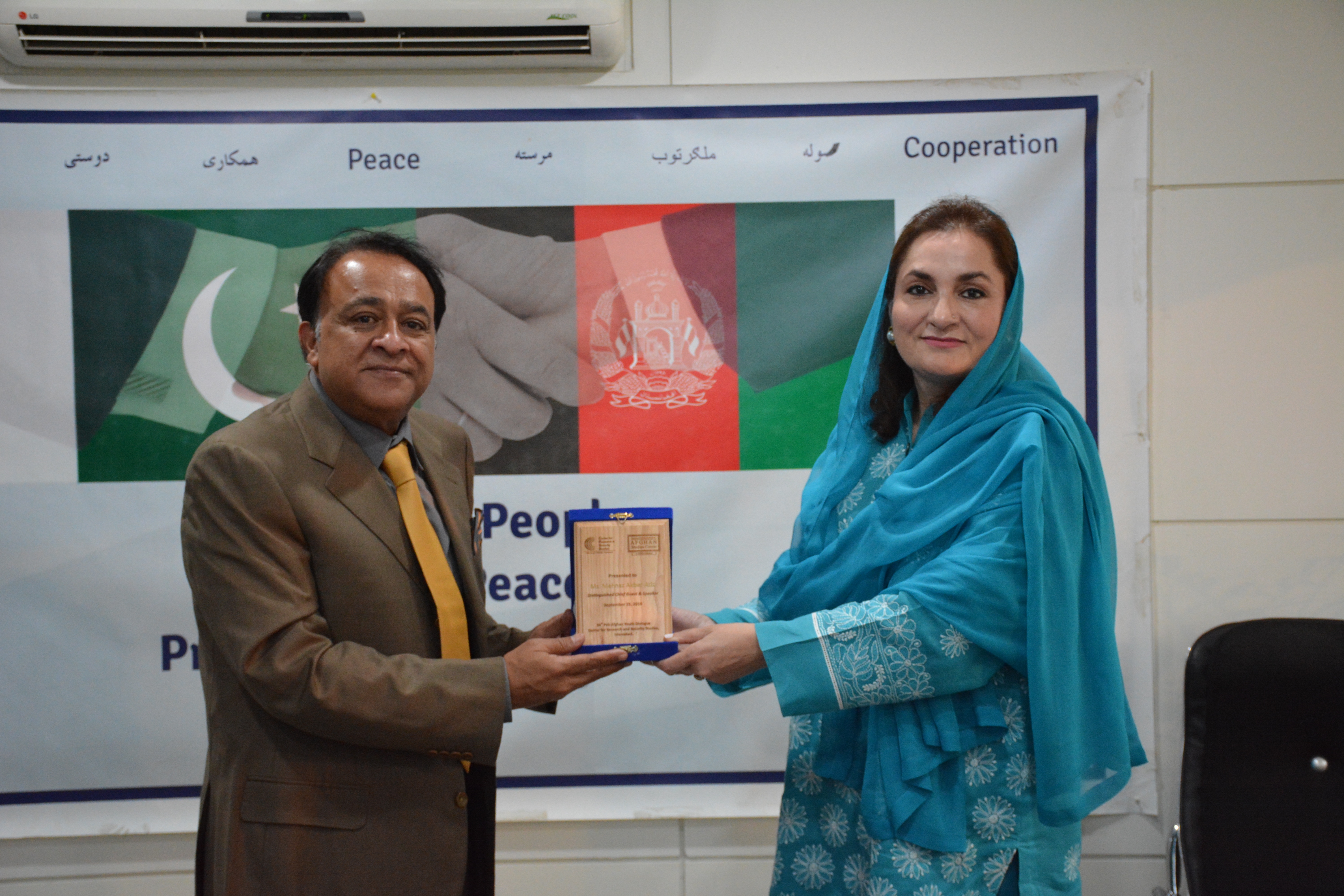
At the end, the ASC team nominated Safia Ibrahimkhel from Kabul, Afghanistan, as the Pak-Afghan Youth Ambassador for the months of September and October 2019. Interestingly, Ms. Safia told the gathering that she was a member of UNHCR Global Youth Advisory Council and a Refugee Youth Ambassador from Pakistan on the forum. She was presented a shield by the Chief Guest, Ms. Mehnaz Akber Aziz. Project Director Mr. Aized Ali also presented an honorary shield of appreciation to the Chief Guest. The session ended with a group picture.
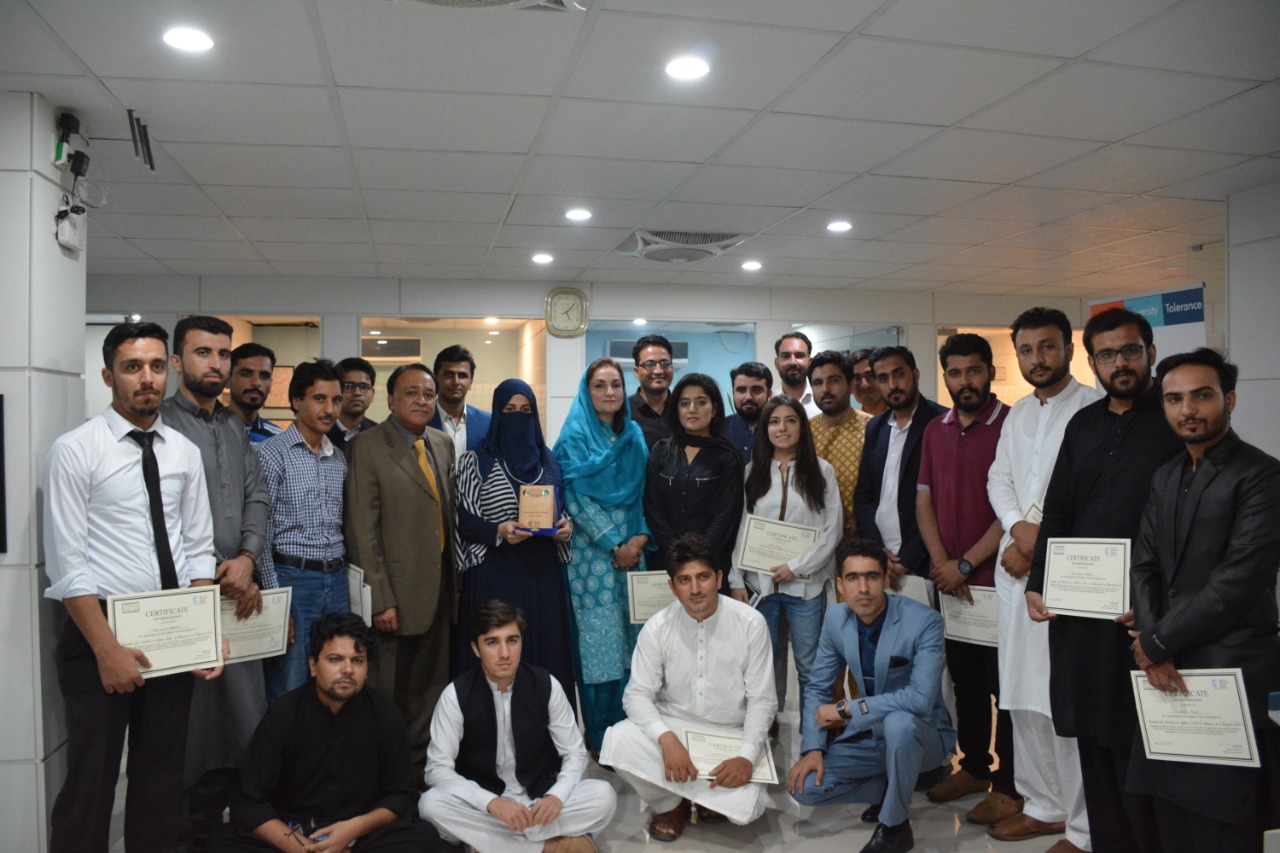
© Center for Research and Security Studies (CRSS) and Afghan Studies Center (ASC), Islamabad



